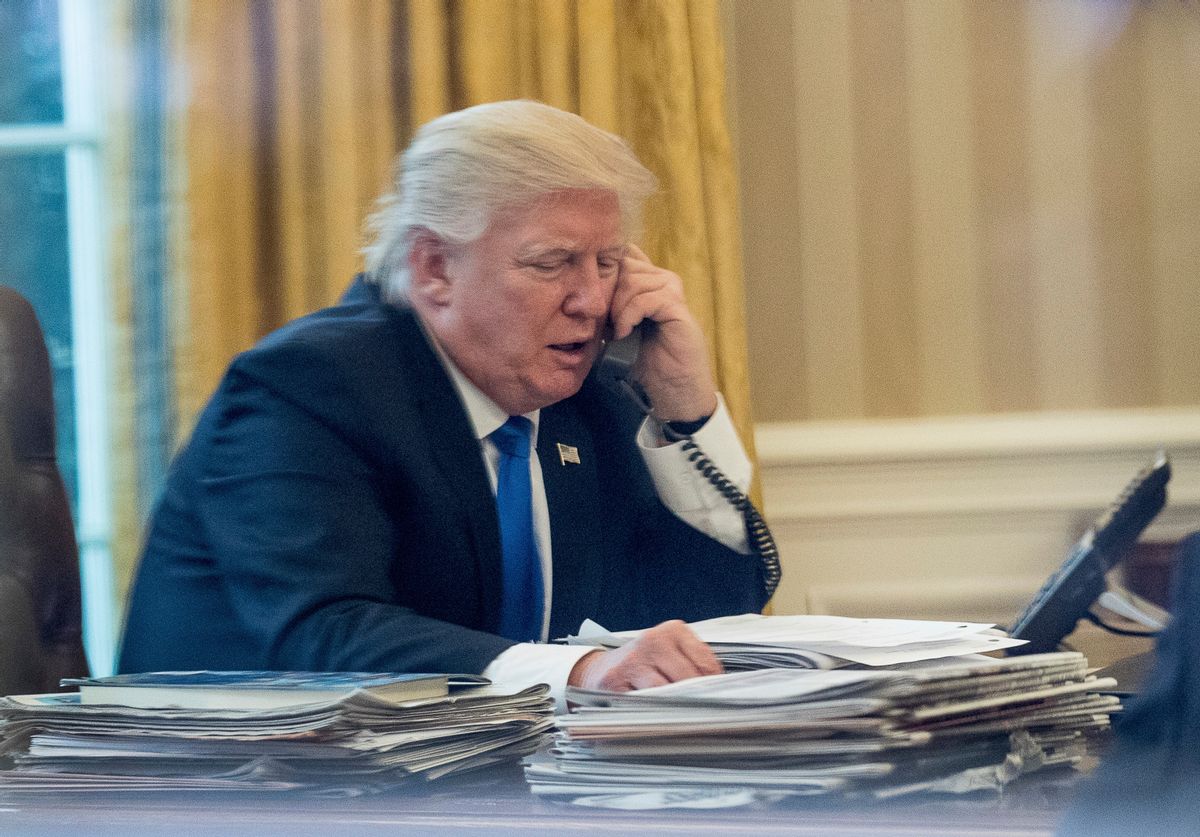President Donald Trump’s technique for dealing with bad news is to create enough confusion and partisanship to envelope it in dense fog.
Consider the most explosive news to come along in recent history — that the FBI has commenced an investigation of Trump aides to find out if they colluded with Russian agents to throw the election to Trump.
America’s intelligence agencies have already concluded that Russian agents interfered in the 2016 presidential election on Trump’s side.
The ranking member of the Senate intelligence committee, who has seen the intelligence reports, says they show that Russia’s interference affected the outcome of the election.
Nothing remotely as serious has ever occurred in United States politics. Russia’s interference is a direct attack on American democracy. If Trump’s aides were involved, that’s treason. If Trump knew about it and did nothing, that’s an impeachable offense at the very least.
Which is why Trump wants to bury it inside a fog of diversions, distractions, claims and allegations that appear to have something to do with it but lead elsewhere.
It’s why he has repeatedly blasted the press as “fake news,” “going crazy with their conspiracy theories and blind hatred;” lashed out at the intelligence agencies for their “unauthorized leaks” “just like Russia;” and conjured up “witch hunts” and conspiracies against him resembling “Nazi Germany.”
But as evidence of Trump’s advisors’ collusion with Russian operatives kept mounting through February, Trump needed a bigger fog machine.
So on March 4 he alleged that Barack Obama had wiretapped him in the Trump Tower during the campaign.
Even if Trump had evidence, his claim was irrelevant to the FBI investigation of Trump’s aides’ possibly treasonous behavior and Trump’s potentially impeachable acts.
But Trump is enough of a con artist to know that merely making this preposterous allegation would give him the fog he needed.
Almost immediately, news stories about the FBI investigation were replaced by stories about Trump’s allegation, about Trump’s lack of evidence for it, about reactions from FBI Director James Comey and others, and about the White House’s desperate attempts to find credible proof.
Which is where Devin Nunes, Republican chair of the House Intelligence Committee comes in.
Soon after Comey’s testimony before Nunes’ committee last week, Nunes went to the White House to look at intelligence reports that, he said, “clearly show the president elect and his team were at least monitored" during the presidential transition. The rest of Nunes’ committee wasn’t allowed to view the documents in question.
Two days later, Nunes said he wasn’t sure whether Trump and his aides were monitored and he needed to review more information. No matter. By then the fog machine was working overtime, generating a thick haze of stories about what Nunes saw or didn’t see, about whom his potential source might be, about whether Nunes’ revelation supported Trump’s claim of Obama’s wiretapping (it didn’t). All which ignited a storm of outrage among Democrats on the Committee — and, thereby, further stories.
Then, when it looked as though three top officials who had served under the Obama Administration were going to testify before the Committee — including Sally Yates, the former Deputy Attorney General who briefly served as acting Attorney General before being fired by Trump — Nunes cancelled the hearing, bringing the House investigation to a temporary halt.
And on it goes, day after day, a thickening fog of diversion and obfuscation — taking public attention away from the FBI’s investigation into possible treason by Trump and his aides, and focusing it instead on a thickening smog of other controversies.
Trump knows that reporters need stories, and he is only happy to oblige. It doesn’t matter how ridiculous or baseless they might be. The more they obscure the big story, the more useful they are.
Trump figures that at some point the murk will seem too complicated and too partisan.
By then, even if the FBI and other intelligence agencies find that Trump or his advisors colluded with Russian operatives to win the election for him, it won’t much matter. Trump and his surrogates will have created an impenetrable fog of claims and counterclaims, plots and subplots, unproven allegations and lies.
The public will have become lost and confused in the fog — exhausted, confounded, cynical. Facts and findings will vanish. It will all come to seem like politics at its worst.
Could Trump get away with it? Possibly.
The biggest danger he faces is that Republican statesmen might emerge from the mist, who are sufficiently concerned about the integrity and sanctity of our democracy to act as lighthouses. They would guide the public through it and shine a beam of clarity on one of the worst outrages in American history.
Do they exist? We will soon find out.



Shares